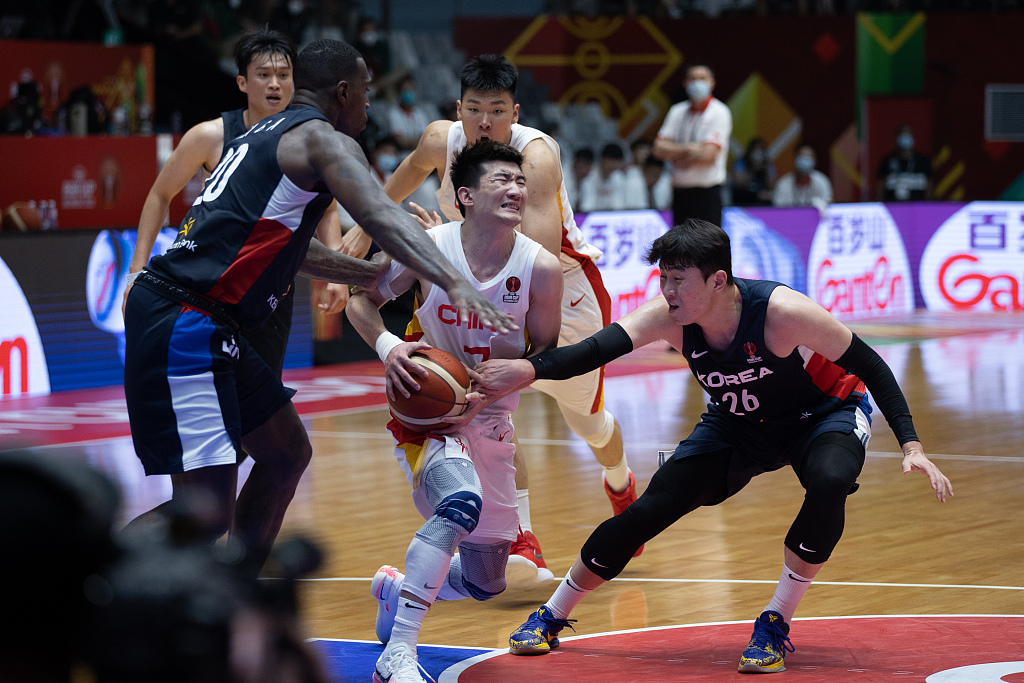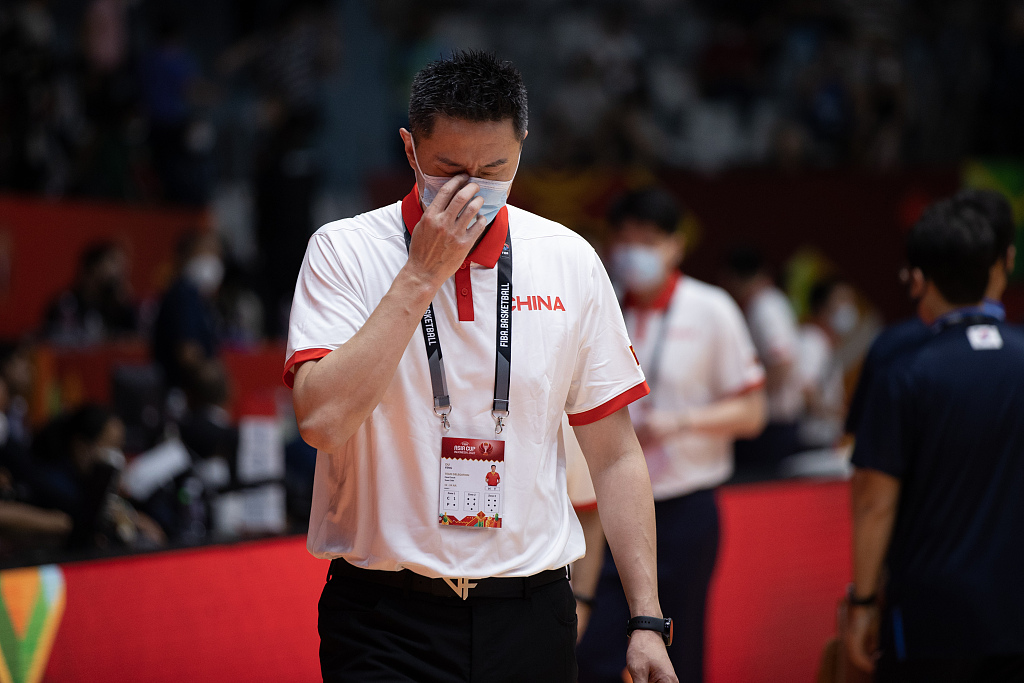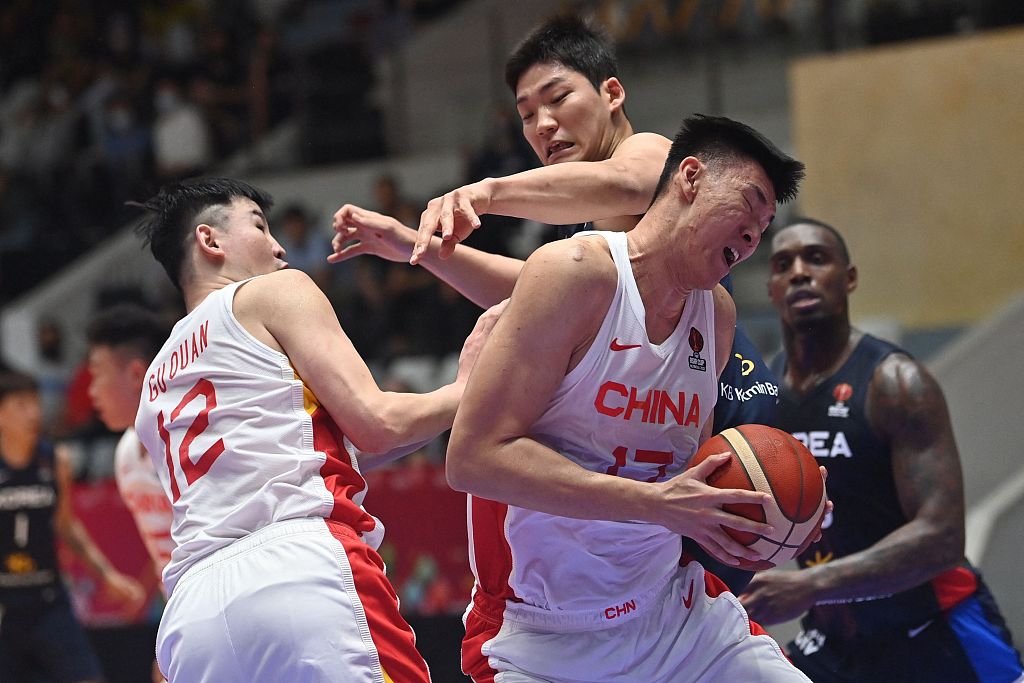
Sun Minghui (C) of China tries to penetrate in the FIBA Asia Cup game against South Korea at Istora Gelora Bung Karno in Jakarta, Indonesia, July 12, 2022. /CFP
Sun Minghui (C) of China tries to penetrate in the FIBA Asia Cup game against South Korea at Istora Gelora Bung Karno in Jakarta, Indonesia, July 12, 2022. /CFP
China suffered a head-on blow by losing 93-81 to South Korea in the first game at the FIBA Asia Cup in Jakarta on Tuesday.
The loss was painful not only because it threw the Chinese national team into a disadvantageous situation, but also because South Korea have been a long-time rival for China.
However, before wrapping the national franchise up in criticism, the voices of head coach Du Feng and multiple players should be heard to see how the loss happened.
The Chinese national team had to recruit six new players in emergency for the Asia Cup because several members of the original squad had to stay in Melbourne for quarantine after testing positive for COVID-19.

Du Feng, head coach of China, looks on in the FIBA Asia Cup game against South Korea at Istora Gelora Bung Karno in Jakarta, Indonesia, July 12, 2022. /CFP
Du Feng, head coach of China, looks on in the FIBA Asia Cup game against South Korea at Istora Gelora Bung Karno in Jakarta, Indonesia, July 12, 2022. /CFP
"The team hardly held any formal training sessions since we arrived here five days ago," Du said after Tuesday's loss. "Many players felt sick and had to rest in their rooms. Basically, we only had six players who were able to train regularly. Only Sun Minghui, Zhao Rui and Hu Mingxuan of the 14-player lineup in Australia could attend practice per the regular schedule."
Du revealed that though some of the players said they were okay, they were not in the best form. "You could see we played well in the first three quarters on a rotation of six to seven players," Du told reporters. "When their strengths fell dramatically in the fourth quarter, they began to commit more turnovers and allowed some easy layups by the opponents in transition."
Du said China would have had a better chance of winning Tuesday's game if they had a complete squad, the players were in better form and had more time to train together.
Neither of China's "twin towers," Zhou Qi and Wang Zhelin, played in Tuesday's game. Du said Wang has not fully recovered yet, and neither has he attended any training session. Zhou will join the national team in the coming days after leaving Melbourne.

Gu Quan (#12) and Fan Ziming (#17) of China compete for the ball in the FIBA Asia Cup game against South Korea at Istora Gelora Bung Karno in Jakarta, Indonesia, July 12, 2022. /CFP
Gu Quan (#12) and Fan Ziming (#17) of China compete for the ball in the FIBA Asia Cup game against South Korea at Istora Gelora Bung Karno in Jakarta, Indonesia, July 12, 2022. /CFP
Fu Hao, who shot 2-for-3 from the field to score eight points and six rebounds against South Korea, posted on Sina Weibo that he just recovered before the game and the team was facing great difficulties.
Zhai Xiaochuan, who was under heavy fire for his underperformance on Tuesday, had a fever as high as 38 degrees Celsius, according to Chinese basketball commentator Shu Hai.
One of the players said he "could see nothing but darkness when he was running on the court."
That's why Du has every reason to defend his players despite the loss. "I think they already won by standing on the floor," he said.
China will play against Bahrain on Thursday.

